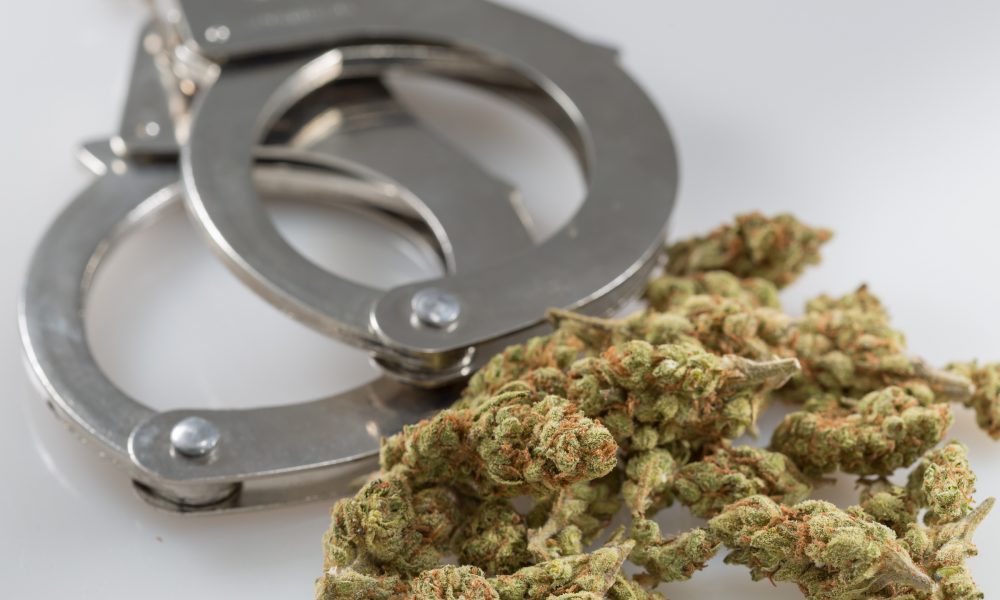The Drug Enforcement Administration (DEA) is acknowledging the fact that racially discriminatory drug laws are partly responsible for the agency’s own founding.
During the latest edition of its “Stories from the Collection” video series, DEA Museum officials talked about the origins of federal drug prohibition and explained how the agency was ultimately created in conjunction with punitive policies that were enacted in the early 20th century.
As the government started taking steps to regulate certain substances like opium, “the public’s view of addiction changed,” the museum’s historian said.
“Increased non-medical use—as well as racial, ethnic and class prejudice—affected public opinion,” they said. “What had been a medical condition became deviant or criminal. This shift led to a wave of laws against heroin, marijuana and cocaine.”
To enforce the new laws, a new agency called the Federal Bureau of Narcotics (FBN) was established under the Treasury Department. FBN was the predecessor of DEA.
It’s well-established that the drug war’s launch—and the way it has been continued to be carried out—was and is largely racially and politically motivated. The Library of Congress has documented how racist and stigmatizing media depictions of marijuana were used to reinforce prohibition, for example.
National Institute on Drug Abuse (NIDA) Director Nora Volkow separately said last year that research has firmly demonstrated that drug criminalization has disproportionately impacted communities of color.
But in this case, the history is being recounted by the archival arm of DEA itself, even as the agency continues to enforce criminalization in line with prohibitionist policy.
DEA has taken steps to at least support research into controlled substances like cannabis and psilocybin, increasing yearly cultivation quotas to meet study demands and authorizing new marijuana growers.
However, scientists and advocates say more needs to be done, and DEA remains as an access barrier.
The agency has repeatedly found itself in court over drug scheduling issues and administrative policy. For instance, DEA is actively being sued for refusing to permit a Seattle-based doctor to access psilocybin to treat terminally ill patients under federal “Right to Try” statute.
To that end, bipartisan lawmakers recently moved to provide additional congressional clarification by filing companion bills in the House and Senate in July to reaffirm that the scope of Right to Try policy should include Schedule I drugs.
The bills were filed about six months after bipartisan members of Congress sent a letter, led by Rep. Earl Blumenauer (D-OR), requesting that DEA allow terminally ill patients to use psilocybin as an investigational treatment without the fear of federal prosecution.
Meanwhile, DEA recently retreated on a proposed ban on psychedelic compounds that scientists say have research value.
That marked another win for scientific community, coming just one month after DEA abandoned separate plans to place five tryptamine psychedelics in Schedule I.
Despite federal prohibition and historical fear-mongering about drugs, public attitudes toward substance misuse have continued to evolve, with a growing public recognition that addiction should be treated as a public health, rather that criminal legal, matter.
A survey released last week also found that most Americans don’t view cannabis as dangerous, regardless of attempts to cast the plant in a negative light.
Medical Disclaimer:
The information provided in these blog posts is intended for general informational and educational purposes only. It is not a substitute for professional medical advice, diagnosis, or treatment. Always seek the advice of your physician or other qualified healthcare provider with any questions you may have regarding a medical condition. The use of any information provided in these blog posts is solely at your own risk. The authors and the website do not recommend or endorse any specific products, treatments, or procedures mentioned. Reliance on any information in these blog posts is solely at your own discretion.







